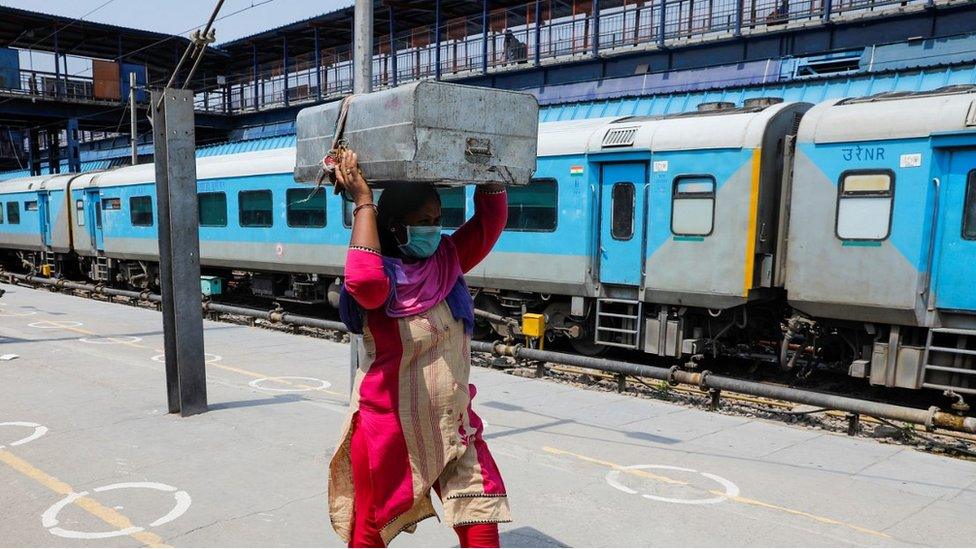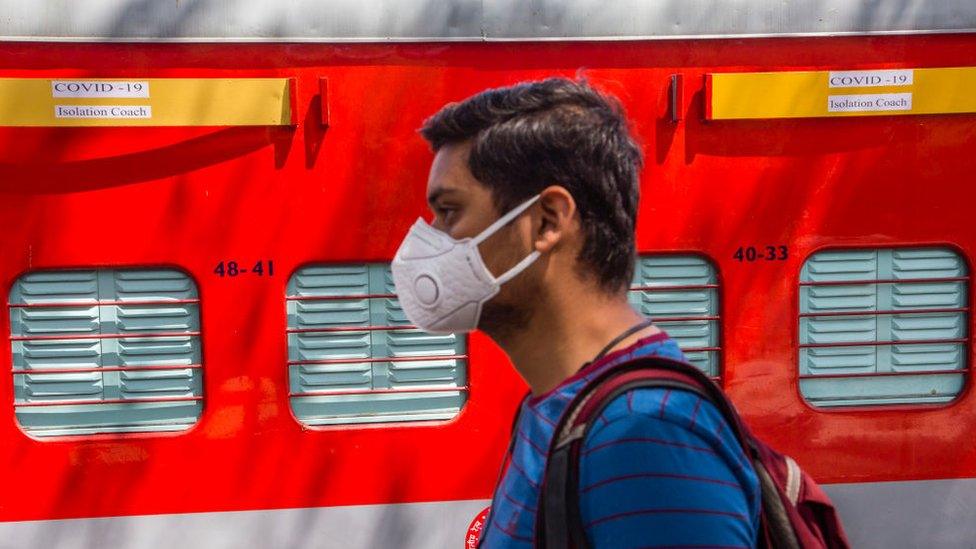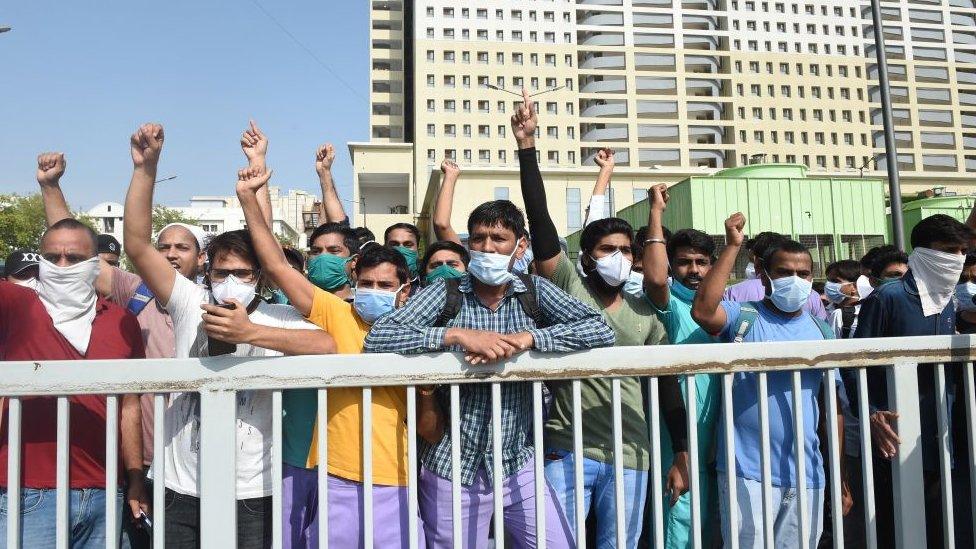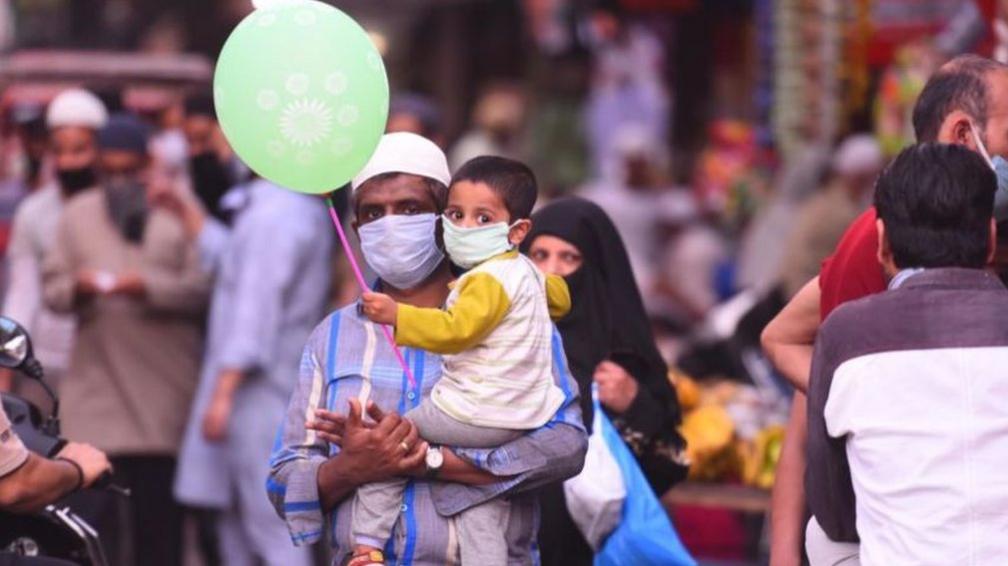Coronavirus: India to use 500 train carriages as wards in Delhi
- Published

Train carriages at New Delhi station
India is to convert another 500 railway carriages to create 8,000 more beds for coronavirus patients in Delhi, amid a surge in infections.
Home Minister Amit Shah announced a package of new emergency measures for the capital, including a rapid increase in testing for Covid-19. Nursing homes will also be requisitioned.
He met Delhi's Chief Minister Arvind Kejriwal to address the crisis.
India's daily number of confirmed new cases has reached almost 12,000.
The total number of 320,922 officially confirmed cases puts India fourth in the world - after the US, Brazil and Russia - in the pandemic.
The death toll in India stands at 9,195, according to data compiled by Johns Hopkins University from official sources.
The Hindustan Times reports that Delhi is the third worst-hit state in India after Maharashtra and Tamil Nadu.
It reports that Delhi's bed capacity across private and government hospitals for Covid-19 patients stands at 9,698, of which 4,248 beds are vacant.
Mr Kejriwal's government plans to use 40 hotels and 77 banquet halls as makeshift hospitals.
India began converting railway carriages into quarantine or isolation wards in April, when large parts of the railway network were suspended owing to the pandemic.
Coronavirus: Death and despair for migrants on Indian roads
Last month the national government announced plans to end a national lockdown that began on 25 March.
Road and plane traffic increased as restrictions started to ease, and many businesses and workplaces reopened. Markets are crowded again.
The lockdown has imposed huge economic costs on India, throwing millions of people out of work, especially migrant workers in precarious, meagrely-paid jobs. Food supply chains were also put at risk.

FACE MASKS: When should you wear one?
GLOBAL SPREAD: Tracking the pandemic
WHAT DOES IT DO TO THE BODY? Doctors on the front line explain

- Published9 April 2020

- Published14 June 2020

- Published10 June 2020

- Published31 May 2020
